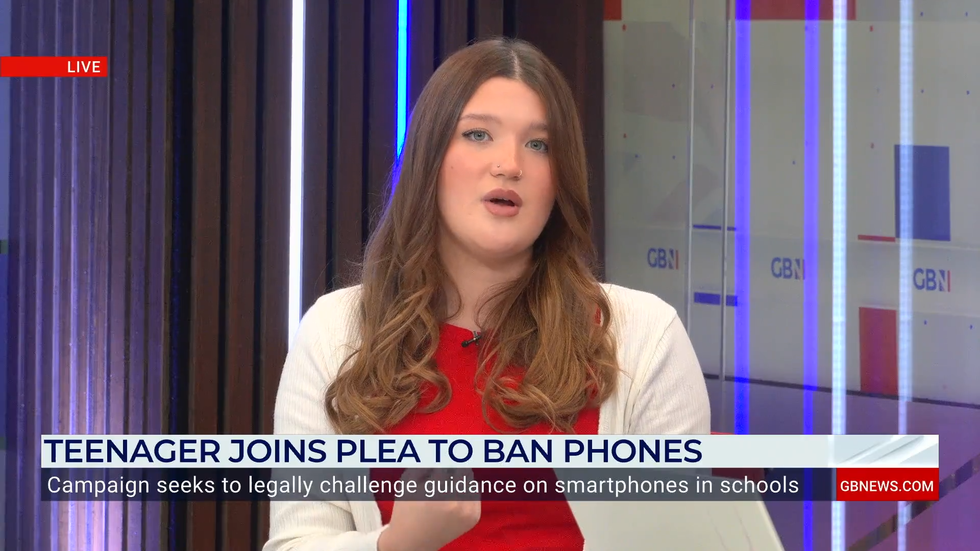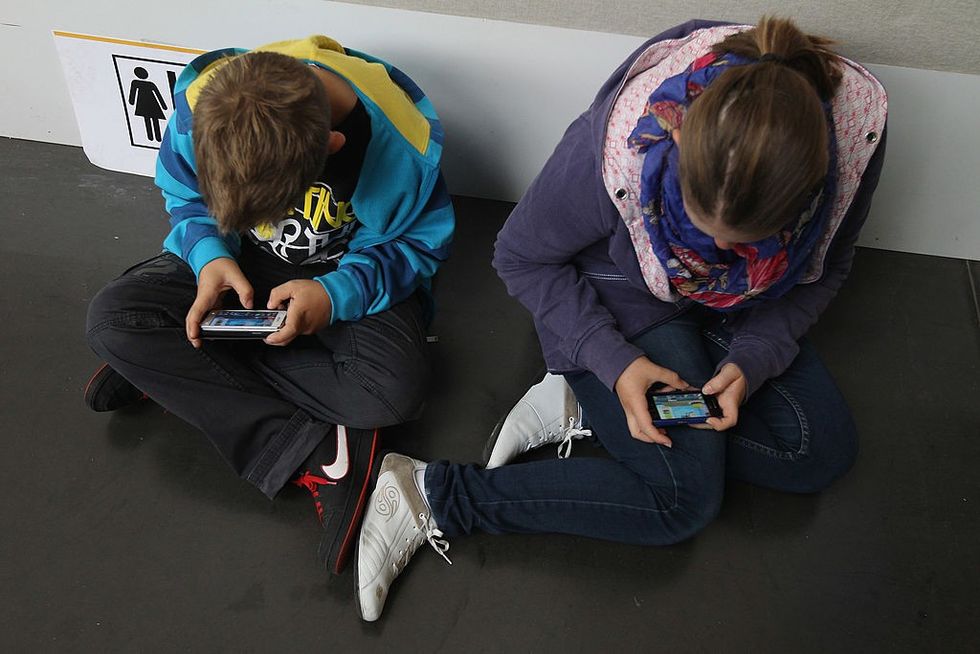Flossie McShea, 17, has joined a legal challenge calling for smartphones to be banned in schools in England, arguing that current guidance allowing headteachers to decide how devices are used is unsafe and unlawful.
Miss McShea says that during her time at the secondary school she was repeatedly exposed to violent, pornographic, and highly graphic videos during lessons, break times, and even while travelling on the school bus.
She also reports receiving threatening messages from other students while at school, which compounded her distress and contributed to her decision to join the judicial review against Education Secretary Bridget Phillipson.
The legal action, first notified to the education secretary in July by campaigners Will Orr-Ewing and Pete Montgomery, argues that schools are failing to protect children from the dangers of unrestricted smartphone use during the school day.

Flossie McShea has joined a legal challenge calling for smartphones to be banned in schools
|
GB NEWS
The teenager told GB News: “The worst one actually happened to me when I had just got off the bus.
“One of my friends came over and said, ‘Look at this video.’ I had to go home because I was so disturbed by it.
“I was talking to a friend about this recently, and she said she had been shown the same video and had to sleep in her mum’s bed for a year when she was 11. That’s just really, really damaging.
“This kind of thing was happening so often, and it is so harmful for young children to go from being completely innocent to being thrown into a world where they are shown content they don’t want to see. It’s honestly extremely damaging.
“The problem is that this can happen anywhere, not just at home, because smartphones make it so easy.
“In a classroom of 30 children, it only takes one person to use AirDrop to share something with everyone.

The 17-year-old is calling for the ban on smartphones (file pic)
|
GETTY“AirDrop lets you send anything to anyone’s phone without their permission and the aim is often just to get a reaction from everyone in the room.
“Banning smartphones in schools would help prevent this from happening and create a safer environment for children.”
McShea added that many of her friends have expressed support for her campaign, saying that they agree she is taking the right approach to protect young people from harm.
She acknowledged that some children may resist a ban on personal devices in schools, particularly those who feel reliant on them for socialising or entertainment.
However, she stressed that the risks associated with unrestricted smartphone use far outweigh any inconvenience, noting that exposure to harmful content at such a young age can have lasting psychological and emotional effects.
She said: “They completely agree with me and they think I’m doing the right thing in challenging the current rules around smartphone use in schools, which clearly aren’t working to keep children safe.”
